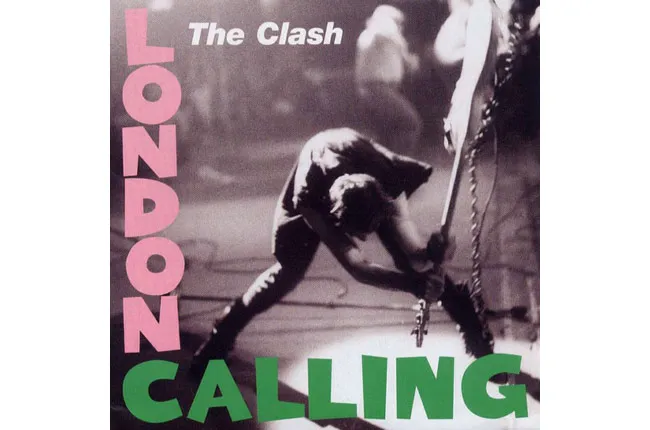
This wasn’t meant to be a fitness blog, folks. Let’s put on the “way back” glasses and dip back into the Clash’s seminal 1978 release, London Calling. Staying true to the “nostalbum”: theme, this is a disc that was in heavy rotation in the home stereo in my childhood woodstove-warmed kitchen until the CD player started to whir. Studded belts and blue spiked hair were the staples of the early 00s for me and my cohorts of rural street punk wannabees. While the Clash wasn’t as aggressive as say Toxic Narcotic, The Unseen, or screams of A Global Threat, or The Casualties, it was for all intents and purposes easily accessible for all social situations, including car rides with parents as many of us were still in that dreaded “learner permit” age.
The magnificent thing that has made the Clash so famous is their uncanny ability to pack an album with catchy driving beats and immediately memorable refrains making it so that every track could be released as a single on its own. Joe Strummer’s Brit slang and swagger casts him more of a narrator than a signer, as he takes you on a journey through multiple genres rather than locked to typical verse / chorus 3 chord chops that were standard for so many (and still is) punk rock bands.
Not that my intent is to review the record from start to finish, but the title track London Calling, albeit featured in countless movie scores has a strange WWII military march vibe to it, and had it had more aggressive vocals (let’s say of Crass…) would be an entirely different animal than the pop sound it resonates today. Reggae and rocksteady were tremendous influences for The Clash and came through loud and clear in “Jimmy Jazz,” and how could you not want to skank to “Wrong em’ Boyo” with walking basslines, syncopated piano chords that call to the black and white checkered print of The Specials. One could even fire up “Revolution Rock,” on an island beach to fuel spliff-fired conversations and two/three reggae dance movies. Funny that in the lyrics early in the album Strummer sings, “phony Beatlemania has bitten the dust,” then delivers a Bruce Springsten-like ballad of “The Card Cheat,” that could also be confused with Paul McCartney’s work in the 80s.
I wonder if tracks like that were meant to be ironic. I read that it was a song they never played live, truly a creation of the studio, and the beauty is it seems like no one was pulling the strings of what they were “supposed to write” as seen in modern production. The Clash seemed to have free reign of the soundscapes they wanted to frame and deliver throughout the album.
Just if you thought Joe was taking you to one place he hits you in the face with their punk roots of “The Clampdown” or “I’m not Down,” reminding them that yeah this is a guitar player’s world, sucker.
A musical point I wanted to make with this review was to visit the concept of the “skipped track phenomenon,” which definitely was more of a thing in the CD era than that of vinyl or tapes, where one had to work much harder for track selection. The thing is everyone approaches as to what speaks to them at the time they are listening to it. This is why an album like London Calling is so timeless as it offers an arc of tempos and tales that one can step away from and return to with a fresh perspective some decades later. “Lost in the Supermarket” was the track that was always skipped as a youth, I didn’t like the speed or the pacing or maybe it just seemed “soft.” I remember later revisiting this track later in my 20s and finding it an absolute show-stopper. Life experience of woes and loss made me magnetically drawn to the somber tone melodious high-necked riffs of Paul Simonon’s bass. Returning as dare-I-say approaching middle-aged, plagued with nostalgia of globe-trotting and heartbreak over fast paced femme fatale of feisty personality stripes has me playing “Lost in the Supermarket” on repeat. This album is truly timeless, and say I someday settle down, this will be one of the first albums I’ll play for my kids.
Keep Rocking,
Anders